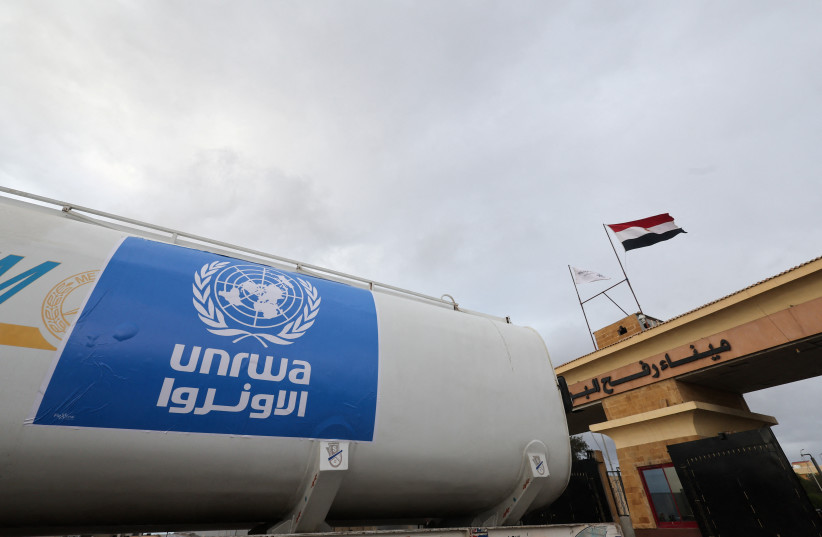Israel has begun the process of replacing the United Nations Relief and Works Agency, Prime Minister Benjamin Netanyahu told reporters on Wednesday night as he spoke of the organization, which services 5.9 million Palestinian refugees.
“We will have to replace UNRWA. I directed that this process be started, and I informed US Secretary of State Antony Blinken about it today,” he said.
He spoke close to two weeks after Israel provided the UN with data alleging that 12 UNRWA staff members had participated in the October 7 massacre, including in kidnappings. It has also alleged that 190 of the UNRWA staff members were connected to Hamas.
Investigations into UNRWA
The UN has opened two investigations into UNRWA, which operates in Gaza, the West Bank, east Jerusalem, Jordan, Syria, and Lebanon. The first investigation deals with the allegations against the 12 staff members and the second is an overall independent review of the organization’s neutrality.
Over 16 countries have temporarily suspended funding to the agency pending the results of the investigations.

On Thursday Finance Minister Bezalel Smotrich (Religious Zionist Party) said he planned to cancel the organization’s tax breaks due to them as a UN agency.
In the Knesset, the Foreign Affairs and Defense Committee Subcommittee for Foreign Policy and Public Diplomacy discussed the issue.
MK Ze’ev Elkin (National Unity), who chairs the committee, used the format to attack Netanyahu, as he noted that while foreign governments had taken policy decisions on UNRWA, Israel was just formulating one.
"I am shocked” that two weeks since the revelations on UNRWA, “not a single discussion has taken place under the leadership of the Prime Minister.”
Should UNRWA be shut down?
The Right, which has long argued that UNRWA should be shut down, believes that the allegations against it provide a window of opportunity to act against the agency.
Netanyahu and members of his government have argued that the services it provides can be handled by other organizations. Before the allegations, opinions were split, with others holding that the organization was irreplaceable as a provider of food, health care, and education. This is particularly true in the Gaza Strip where it is the primary organ of humanitarian assistance in the war-torn enclave.
UNRWA’s mandate to operate, however, is granted by the UN General Assembly, where the organization enjoys overwhelming support.
The bulk of the funding for its 1.6 billion annual budget comes from individual UN member states and some of the largest of those donors are among those who suspended funding. If the funding is permanently cut, that would limit the scope of the UNRWA’s operations.
Israel may have some power to close UNRWA’s operations in Gaza, the West Bank, and Jerusalem, which services over 2.16 million Palestinians.
Uri Reznik, the deputy head of the National Security Council Foreign Policy Division, spoke to the subcommittee. He explained that the policy was to shut down UNRWA and that staff work had been done examining how to do that. Reznik said that National Security Council Director Tzahi Hanegbi was expected to discuss the matter next week.
Amir Weissbrod, Foreign Ministry Deputy Director of International Organizations, said that the intention was to transfer the services provided by UNRWA to other organizations gradually.
Israel, he said, has asked donor countries to freeze funding, and it has also asked the UN to broaden the scope of its investigation against the organization.
UNRWA said in response, "How and where UNRWA works is something discussed at the UN General Assembly. For now most member states continue to vote for the continuation of our services in our five fields of operations."
